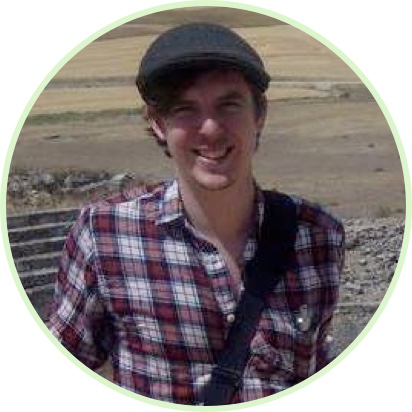The Team
Alejandro G. Sinner
back to top I earned my B.A. degree in History (2007) and my M.A.
degree in Archaeology (2011) at the University of
Barcelona. Throughout my Ph.D. degree, I held competitive
fellowships that allowed me to spend periods of my research in the United States at Princeton University
(2011-12) and at the University of California, Berkeley
(2013). My Ph.D. from the University of Barcelona –
focused on society, culture and the numismatics of
Republican Spain – was successfully completed in 2014,
and it obtained a distinction cum laude as well as an
international mention. That same year, I was awarded a
Social Sciences and Humanities Research Council of Canada
(SSHRC) Postdoctoral Fellowship in the History Department
at York University. In 2016 I was appointed to my current
position as an Assistant Professor in Roman Art and
Archaeology in the Department of Greek and Roman Studies
at the University of Victoria.
I earned my B.A. degree in History (2007) and my M.A.
degree in Archaeology (2011) at the University of
Barcelona. Throughout my Ph.D. degree, I held competitive
fellowships that allowed me to spend periods of my research in the United States at Princeton University
(2011-12) and at the University of California, Berkeley
(2013). My Ph.D. from the University of Barcelona –
focused on society, culture and the numismatics of
Republican Spain – was successfully completed in 2014,
and it obtained a distinction cum laude as well as an
international mention. That same year, I was awarded a
Social Sciences and Humanities Research Council of Canada
(SSHRC) Postdoctoral Fellowship in the History Department
at York University. In 2016 I was appointed to my current
position as an Assistant Professor in Roman Art and
Archaeology in the Department of Greek and Roman Studies
at the University of Victoria.
My research covers the social and cultural history of Roman Spain and the western provinces, and my publications include books and articles in peer reviewed journals exploring Iberian numismatics, pre-Roman languages in the Iberian peninsula, pre-Roman and Roman domestic and religious spaces, and the construction of identities and the processes of cultural change in colonial contexts. Since 2006 I have been digging at the ancient site of Ilduro (Cabrera de Mar, Catalonia) in northeastern Spain.
https://uvic.academia.edu/AlejandroGSinner
Víctor Revilla
back to top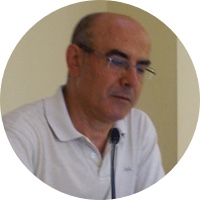 Victor Revilla Calvo (Mataró 1961) holds a B.A. degree in Geography and History (1985) and a Ph.D. in Prehistory, Ancient History and Archaeology (1994) from the University of Barcelona. He is currently a Professor of Ancient History at the University of Barcelona and an invited professor at the Universities of Campinas (Brasil), Padua (Italy), and Cádiz (Spain).
Victor Revilla Calvo (Mataró 1961) holds a B.A. degree in Geography and History (1985) and a Ph.D. in Prehistory, Ancient History and Archaeology (1994) from the University of Barcelona. He is currently a Professor of Ancient History at the University of Barcelona and an invited professor at the Universities of Campinas (Brasil), Padua (Italy), and Cádiz (Spain).
Prof. Revilla’s research focuses on the social and economic history of Rome. His main research lines include the analysis of the rural economy and settlement in Hispania, the economic relation between the Roman provinces (focusing on material culture, rural property settlement and the exchanges between Spain, Africa and Italy), and the forms of dependence and communication in the Roman provincial society of the Early Empire. Prof. Revilla’s publication record includes 10 books discussing archaeological and historical topics, 42 papers in indexed journals, and over 100 papers published in other journals, conference proceedings and colloquia on territory, economy, and habitat. Prof. Revilla is currently the director of several research projects in Spain and has participated in research projects in Italy (Rome and Pompeii), Tunisia, Germany, and Libya.
https://ub.academia.edu/VictorRevilla
Jonathan Edmondson
back to top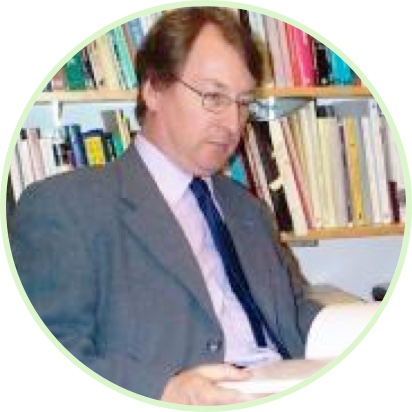 Professor Jonathan Edmondson teaches in History and
Classical Studies. Professor Edmondson's research
interests are in Roman History, in particular in the
society, economy and culture of Roman Spain (especially
Lusitania) from the late Iron Age to the late Roman
Empire; Roman epigraphy, especially of the Roman Empire;
gladiators in Roman society; the Roman family; and
Greco-Roman historiography, especially Cassius Dio. He is
currently working on cultural interaction and cultural
change in the western Roman Empire (especially Lusitania)
and on local society at Augusta Emerita (Mérida, Spain).
He is also co-editing the Oxford Handbook of Roman
Epigraphy and writing a general book on the Roman family
for Cambridge University Press and the fifth volume in
the Edinburgh History of Rome series, covering the
history of the Roman Empire from Tiberius to Commodus. He
was a visiting professor at the Centre Ausonius and
Department of History, Université de Michel de Montaigne
– Bordeaux III in February/March 1999 and elected a
Corresponding Member of the Real Academia de la History
(Royal Academy of History) of Spain in 2002 and a Fellow
of the Royal Historical Society (London, U.K.) in June
2009. He won the international prize, "Genio Protector de
la Colonia Augusta Emerita", awarded by Spain's Ministry
of Culture and the Museo Nacional de Arte Romano, Mérida,
in September 2011 and the Award of Merit of the Classical Association of Canada / Société Canadienne des Études
Classiques in May 2014.
Professor Jonathan Edmondson teaches in History and
Classical Studies. Professor Edmondson's research
interests are in Roman History, in particular in the
society, economy and culture of Roman Spain (especially
Lusitania) from the late Iron Age to the late Roman
Empire; Roman epigraphy, especially of the Roman Empire;
gladiators in Roman society; the Roman family; and
Greco-Roman historiography, especially Cassius Dio. He is
currently working on cultural interaction and cultural
change in the western Roman Empire (especially Lusitania)
and on local society at Augusta Emerita (Mérida, Spain).
He is also co-editing the Oxford Handbook of Roman
Epigraphy and writing a general book on the Roman family
for Cambridge University Press and the fifth volume in
the Edinburgh History of Rome series, covering the
history of the Roman Empire from Tiberius to Commodus. He
was a visiting professor at the Centre Ausonius and
Department of History, Université de Michel de Montaigne
– Bordeaux III in February/March 1999 and elected a
Corresponding Member of the Real Academia de la History
(Royal Academy of History) of Spain in 2002 and a Fellow
of the Royal Historical Society (London, U.K.) in June
2009. He won the international prize, "Genio Protector de
la Colonia Augusta Emerita", awarded by Spain's Ministry
of Culture and the Museo Nacional de Arte Romano, Mérida,
in September 2011 and the Award of Merit of the Classical Association of Canada / Société Canadienne des Études
Classiques in May 2014.
https://yorku.academia.edu/JonathanEdmondson
Albert Martín
back to top Mr. Martín earned his B.A. degree in Geography and
History (1986) from the Department of Prehistory and
Ancient History at the University of Barcelona. He has
being practicing archaeology since 1979, beginning his
professional career in the field in 1986. His first
excavations in Cabrera de Mar took place during the 80s
but 1997-1998 was when he directed the excavations of the
Ca l’Arnau and Can Mateu sectors, discovering the Late
Republican Settlement and tremendously changing our
understanding of ancient Ilduro. As of 2001 he has
maintained a full time position as the Archaeologist of
Cabrera de Mar Town Hall, coordinating and supervising
all the excavations that take place in the village. Mr.
Martín’s main research interests are the Romanization
process of the Laietani territory, the production and
commercialization of Laietani amphorae and the study of
the imported amphorae in Catalonia during the Roman
Republic.
Mr. Martín earned his B.A. degree in Geography and
History (1986) from the Department of Prehistory and
Ancient History at the University of Barcelona. He has
being practicing archaeology since 1979, beginning his
professional career in the field in 1986. His first
excavations in Cabrera de Mar took place during the 80s
but 1997-1998 was when he directed the excavations of the
Ca l’Arnau and Can Mateu sectors, discovering the Late
Republican Settlement and tremendously changing our
understanding of ancient Ilduro. As of 2001 he has
maintained a full time position as the Archaeologist of
Cabrera de Mar Town Hall, coordinating and supervising
all the excavations that take place in the village. Mr.
Martín’s main research interests are the Romanization
process of the Laietani territory, the production and
commercialization of Laietani amphorae and the study of
the imported amphorae in Catalonia during the Roman
Republic.
Carlos Velasco Felipe
back to top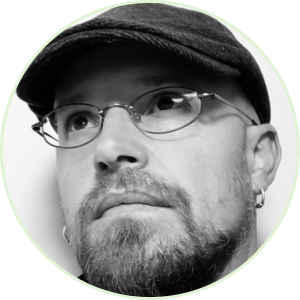 Carlos Velasco is an archaeologist with extensive experience in academic and preventive excavations across diverse cultural contexts within and beyond Europe. He earned his B.A. in History (2002) and his M.A. in Advanced Studies in Archaeology (2012) from the University of Barcelona. During his M.A., he became affiliated with the Archeo-Ecology Social Mediterranean Research Group (ASOME) at the Autonomous University of Barcelona, where he later completed his Ph.D. (2021). His research, focused on Early Bronze Age archaeology and complex societies, includes key contributions to high-impact journals such as Science Advances and Antiquity, particularly on social organization, archaeological genomics, and spatial-symbolic frameworks during the Argaric and Copper–Bronze Age transition.
Carlos Velasco is an archaeologist with extensive experience in academic and preventive excavations across diverse cultural contexts within and beyond Europe. He earned his B.A. in History (2002) and his M.A. in Advanced Studies in Archaeology (2012) from the University of Barcelona. During his M.A., he became affiliated with the Archeo-Ecology Social Mediterranean Research Group (ASOME) at the Autonomous University of Barcelona, where he later completed his Ph.D. (2021). His research, focused on Early Bronze Age archaeology and complex societies, includes key contributions to high-impact journals such as Science Advances and Antiquity, particularly on social organization, archaeological genomics, and spatial-symbolic frameworks during the Argaric and Copper–Bronze Age transition.
Independently of ASOME, Carlos has directed and participated in numerous archaeological interventions in Iberian and Roman contexts. He has also published several works related to these research lines. In addition, he is an expert in cultural dissemination through social media—a skill set that has led to his active involvement in the Ilduro Archaeological Project. His combined archaeological and communication expertise makes him a valuable asset in both fieldwork coordination and public outreach.
https://www.researchgate.net/profile/Carlos-Velasco-Felipe
Judit Vico
back to top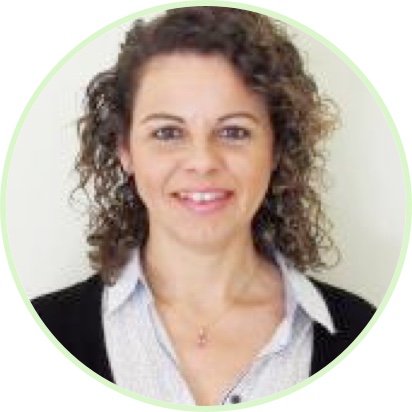 Ms. Vico earned her B.A. degree in History at the
University of Barcelona (UB) in 1998. The same year, she
started her career in archaeology specializing in two
fundamental methodological aspects of the discipline: documentation and excavation. After many years of field
work experience, she has developed a strong
specialization in archaeological field recording, with
field drawing and the use of software’s such as AutoCAD
as some of her strengths. Since 2009, Ms. Vico has been
coordinating all of the field drawing tasks that take
place in the archaeological site of Cabrera de Mar, where
she has also directed an important number of
archaeological excavations.
Ms. Vico earned her B.A. degree in History at the
University of Barcelona (UB) in 1998. The same year, she
started her career in archaeology specializing in two
fundamental methodological aspects of the discipline: documentation and excavation. After many years of field
work experience, she has developed a strong
specialization in archaeological field recording, with
field drawing and the use of software’s such as AutoCAD
as some of her strengths. Since 2009, Ms. Vico has been
coordinating all of the field drawing tasks that take
place in the archaeological site of Cabrera de Mar, where
she has also directed an important number of
archaeological excavations.
Silvia Valenzuela
back to top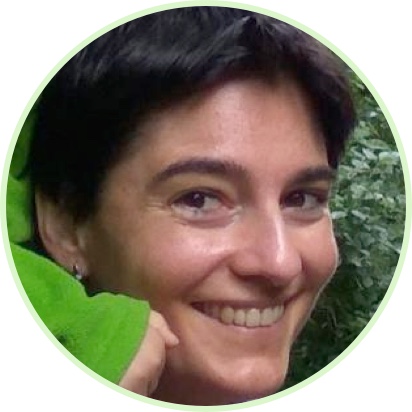 Silvia Valenzuela-Lamas. Milà i Fontanals Institution
(CSIC). Maîtrise in Zooarchaeology (2003) and PhD in
Archeology from the University of Barcelona (2008).
Between 2009 and 2011 she had a Fundação para a Ciência e
Tecnologia (FCT) postdoctoral fellowship at the
Universidade de Lisboa (Portugal), and from 2011 to 2014
she held a Marie Curie postdoctoral contract ('Intra
European Marie Curie Fellowship') at the University of
Sheffield (UK). Since 2017 she is leading an ERC-Starting
Grant project at the Consejo Superior de Investigaciones
Científicas (CSIC-IMF, Barcelona) to analyse how economic
changes shaped livestock production from Late Prehistory
to post-Classical times. She uses zooarchaeology and
various techniques (e.g. isotopes, geometric
morphometrics, dental microwear, ancient DNA) to
characterise human-animal interactions in the past and
analyse changes through time.
Silvia Valenzuela-Lamas. Milà i Fontanals Institution
(CSIC). Maîtrise in Zooarchaeology (2003) and PhD in
Archeology from the University of Barcelona (2008).
Between 2009 and 2011 she had a Fundação para a Ciência e
Tecnologia (FCT) postdoctoral fellowship at the
Universidade de Lisboa (Portugal), and from 2011 to 2014
she held a Marie Curie postdoctoral contract ('Intra
European Marie Curie Fellowship') at the University of
Sheffield (UK). Since 2017 she is leading an ERC-Starting
Grant project at the Consejo Superior de Investigaciones
Científicas (CSIC-IMF, Barcelona) to analyse how economic
changes shaped livestock production from Late Prehistory
to post-Classical times. She uses zooarchaeology and
various techniques (e.g. isotopes, geometric
morphometrics, dental microwear, ancient DNA) to
characterise human-animal interactions in the past and
analyse changes through time.
https://csic.academia.edu/SilviaValenzuelaLamas
Marisol Madrid
back to top Dr. Marisol Madrid i Fernández is an Adjunct Professor
and Researcher at the Cultura Material i Arqueometria UB
(ARQUB) research unit, at the University of Barcelona.Her
activity is focused on the application of analytical
techniques to the study of archaeological materials,
especially ceramics. She has participated in more than 40
research projects underlining the current Tecnolonial
project, in which the main objective is to deepen the
understanding of aspects of colonial interactions through
the study of pottery. She is author / co-author of over
50 publications and has been a co-organizer of two
scientific international conferences. She has had
longstanding activity in the field of Classical
archaeology, highlighting the research project at the
Roman town of Cosa (Italy), in which she leads the
archaeological and archaeometrical study of Roman black
glazed and Terra Sigillata ware.
Dr. Marisol Madrid i Fernández is an Adjunct Professor
and Researcher at the Cultura Material i Arqueometria UB
(ARQUB) research unit, at the University of Barcelona.Her
activity is focused on the application of analytical
techniques to the study of archaeological materials,
especially ceramics. She has participated in more than 40
research projects underlining the current Tecnolonial
project, in which the main objective is to deepen the
understanding of aspects of colonial interactions through
the study of pottery. She is author / co-author of over
50 publications and has been a co-organizer of two
scientific international conferences. She has had
longstanding activity in the field of Classical
archaeology, highlighting the research project at the
Roman town of Cosa (Italy), in which she leads the
archaeological and archaeometrical study of Roman black
glazed and Terra Sigillata ware.
https://ub.academia.edu/MarisolMadridiFernández
John Matthew Huculak
back to top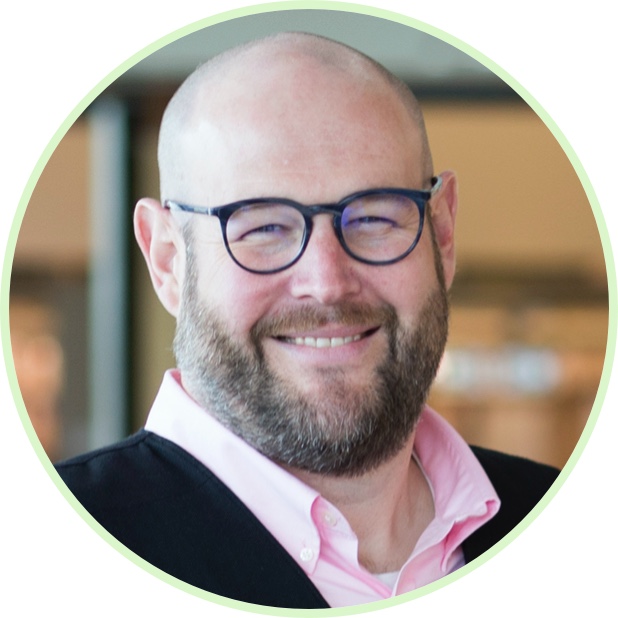 Dr. J. Matthew Huculak is Digital Scholarship Librarian at the University of Victoria’s McPherson Library. He holds a PhD in English Language & Literature and an MLIS with a concentration on archives and preservation. He is technical director and founding managing editor of Modernism/modernity’s Print Plus platform, which won the Association of American Publishers 2019 PROSE Awards for “Innovation in Publishing.”
Dr. J. Matthew Huculak is Digital Scholarship Librarian at the University of Victoria’s McPherson Library. He holds a PhD in English Language & Literature and an MLIS with a concentration on archives and preservation. He is technical director and founding managing editor of Modernism/modernity’s Print Plus platform, which won the Association of American Publishers 2019 PROSE Awards for “Innovation in Publishing.”
His research focuses on libraries, 20th-century English literature, book history, and periodicals. He has served as Editorial Assistant for the James Joyce Quarterly, Project Director of the National Endowment for the Humanities funded Modernist Journals Project, and is currently Director of the Social Sciences and Humanities Research Council funded Modernist Versions Project and Co-Director of BC Open Textbook-funded Open Modernisms.
López i Reyes
back to top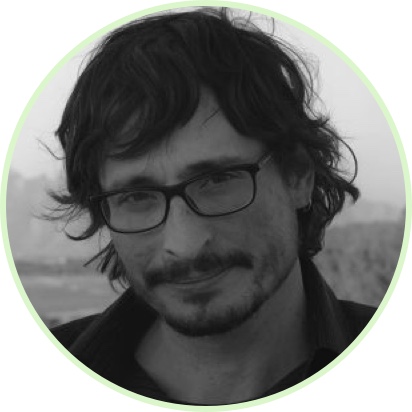 Born in Barcelona in 1979, Mr. López i Reyes is a co-founder and head of research at Arqueovitis sccl. He holds a B.A in History from the University of Barcelona (2004), with a specialized curriculum in prehistory, ancient history and archaeology, and a Certificate of Advanced Studies (DEA) from the University of Barcelona (2006).
Born in Barcelona in 1979, Mr. López i Reyes is a co-founder and head of research at Arqueovitis sccl. He holds a B.A in History from the University of Barcelona (2004), with a specialized curriculum in prehistory, ancient history and archaeology, and a Certificate of Advanced Studies (DEA) from the University of Barcelona (2006).
Mr. López i Reyes has specialized in archeobotanical studies and carpological analysis. He collaborates regularly with several research projects in, Spain, France and North Africa, and coordinates the comprehensive archeology project of the vineyard and wine in Cessetania (in today's modern Catalonia).
https://arqueovitis.com/dani-lopez-i-reyes/
Harrison Forsyth
back to topDevon Lohrasbe
back to top Devon is a PhD student in Educational Studies at the University of Victoria. Her work investigates informal learning and outreach in higher education contexts. Devon is interested in deepening connections between academics and audiences outside the academy, whether that’s the curious public or K-12 teachers and their students.
Devon is a PhD student in Educational Studies at the University of Victoria. Her work investigates informal learning and outreach in higher education contexts. Devon is interested in deepening connections between academics and audiences outside the academy, whether that’s the curious public or K-12 teachers and their students.
These interests are informed by her dual background in informal learning and Mediterranean archaeology. In 2020, Devon completed a Masters in Museum Education at the University of British Columbia. Her research explored the ways that classical scholars learn about the ancient world off-campus and how these learning experiences inform their work at universities. Previously, Devon completed an MA in Classical Archaeology and a BA in Classical Civilization at the University of Victoria. Her MA thesis examined the reception of the hybrid Minotaur in fifth-century Athens.

